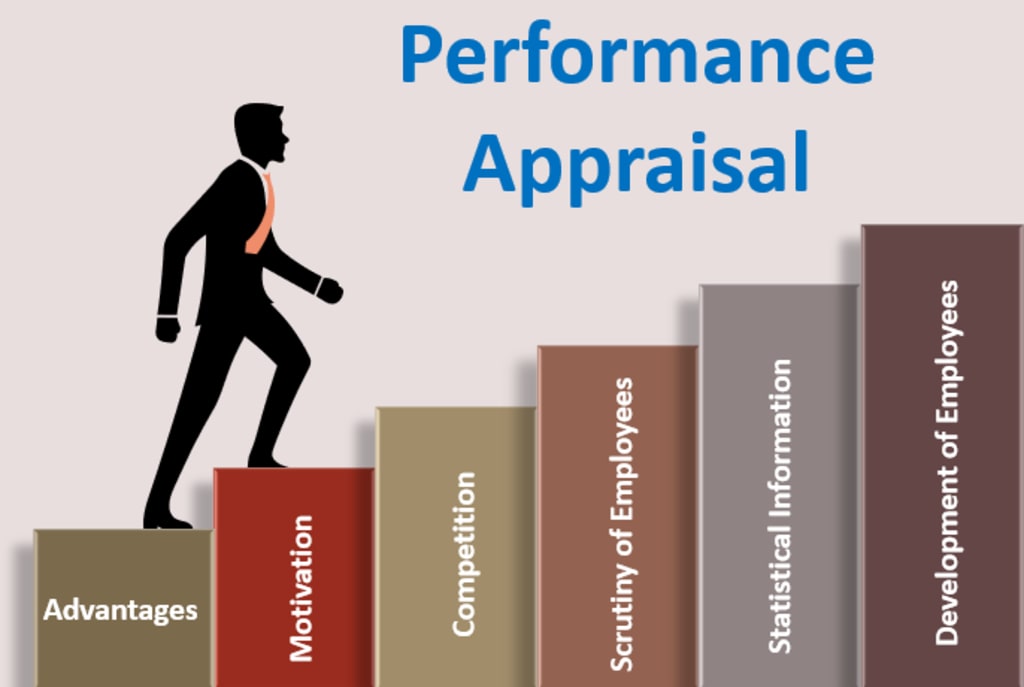Performance Appraisal
Unveiling the Power of Performance Appraisal: Maximizing Employee Potential

Introduction:
In the dynamic and competitive landscape of the modern workplace, organizations strive to optimize employee performance to achieve their goals and maintain a competitive edge. Performance appraisal, a systematic and structured process, has emerged as a vital tool for evaluating and enhancing employee productivity, motivation, and development. This article aims to shed light on the significance of performance appraisal, its benefits, and the key considerations for implementing an effective appraisal system.
Understanding Performance Appraisal:
Performance appraisal can be defined as a formal evaluation process designed to assess an employee's job performance, skills, competencies, and accomplishments. It involves measuring performance against predetermined goals, providing feedback, identifying strengths and areas for improvement, and establishing future objectives. Performance appraisals can take various forms, including annual reviews, quarterly check-ins, 360-degree feedback, and self-assessments.
Benefits of Performance Appraisal:
1. Goal Alignment and Clarity: Performance appraisals enable organizations to align individual goals with overall organizational objectives. By setting clear performance expectations, employees gain a better understanding of their roles and responsibilities, fostering a sense of purpose and direction.
2. Enhanced Performance and Productivity: Regular performance evaluations provide constructive feedback to employees, highlighting their strengths and areas for development. This feedback helps employees understand their performance in relation to expectations, motivates them to improve, and fosters a culture of continuous learning and growth.
3. Employee Development and Training: Performance appraisal serves as a platform for identifying skill gaps and training needs. Managers can use this opportunity to provide guidance, support, and resources to enhance employees' knowledge and capabilities, leading to improved performance and career advancement.
4. Talent Management and Succession Planning: Effective performance appraisal systems facilitate the identification of high-performing employees and potential successors for critical positions. This helps organizations identify and nurture talent, enabling effective succession planning and reducing the risk of leadership gaps.
5. Employee Engagement and Retention: A transparent and fair performance appraisal process demonstrates an organization's commitment to recognizing and valuing employee contributions. This can foster a positive work environment, increase job satisfaction, and contribute to higher employee engagement and retention rates.
Key Considerations for Effective Performance Appraisal:
1. Clear and Objective Criteria: Performance criteria should be well-defined, measurable, and aligned with organizational objectives. Clear expectations help eliminate biases and subjectivity, ensuring fairness and consistency in the appraisal process.
2. Regular and Timely Feedback: Feedback should be provided promptly and frequently, not just during the formal appraisal period. Regular check-ins allow for course correction, clarification of expectations, and ongoing development discussions.
3. Two-Way Communication: Performance appraisal should encourage open and constructive dialogue between managers and employees. It should be a collaborative process where employees can share their perspectives, discuss challenges, and contribute to goal setting and performance improvement plans.
4. Training and Development Opportunities: Organizations should invest in training managers on effective performance appraisal techniques, including delivering feedback, coaching, and goal setting. Employees should also be provided with resources and development opportunities to support their growth.
5. Recognition and Rewards: Performance appraisal should be linked to recognition and rewards. Employees who consistently meet or exceed expectations should be acknowledged and rewarded appropriately, reinforcing a culture of performance excellence.
Conclusion:
Performance appraisal serves as a powerful tool for assessing, developing, and maximizing employee potential. When implemented effectively, it aligns individual performance with organizational goals, enhances productivity, fosters employee development, and contributes to a positive work environment. By embracing performance appraisal as an ongoing process rather than a mere annual event, organizations can unlock the full potential of their workforce and gain a competitive advantage in today's ever-evolving business landscape.
About the Creator
Enjoyed the story? Support the Creator.
Subscribe for free to receive all their stories in your feed. You could also pledge your support or give them a one-off tip, letting them know you appreciate their work.






Comments
There are no comments for this story
Be the first to respond and start the conversation.